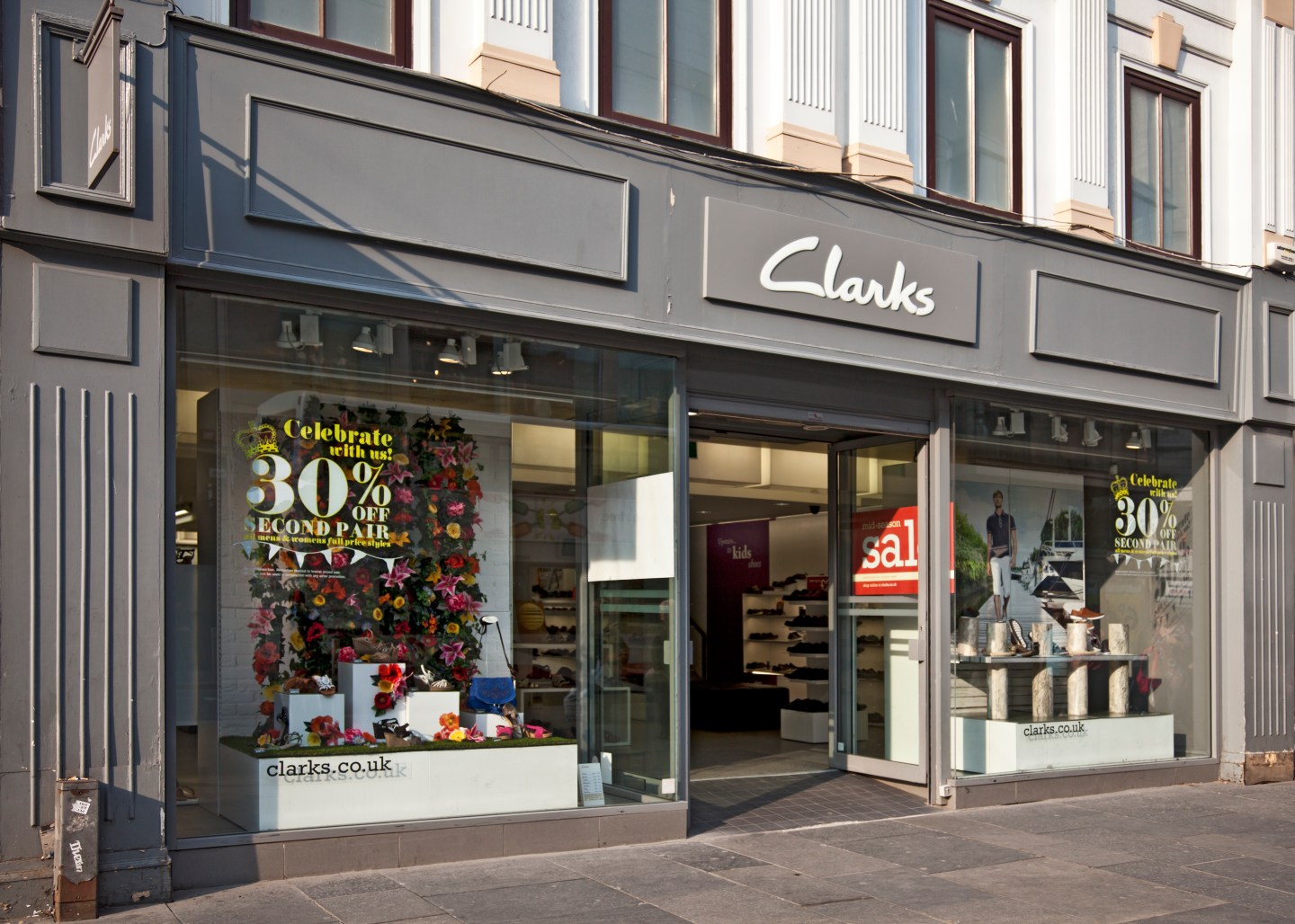British shoemaker Clarks, known for its thick-soled comfort kicks, is being accused of “everyday sexism” after releasing kids’ school shoes with gendered names.
The company called its girls’ school shoe—a Mary Jane style with a pink, heart-printed insole—the “Dolly Babe.” The boy version of the shoe—a lace-up style imprinted with a soccer ball—is called “Leader.” The shoe names that perpetuate long-held gender stereotypes have prompted so much outrage from parents and politicians that Clarks has yanked the Dolly Babe from its website, though it’s still available on Amazon.
“We are working hard to ensure our ranges reflect our gender-neutral ethos,” Clarks said in a statement to the BBC. “We apologize for any unintended offense caused.”
Subscribe to The World’s Most Powerful Women, Fortune’s daily must-read for global businesswomen.
Miranda Williams, a councillor and cabinet member for children and young people in southeast London, was one of the first to call Clarks out on its sexist branding.
Looking at school shoes from @clarksshoes – appalled to find a Dolly Babe range for girls but a Leader range for boys @EverydaySexism
— Miranda Williams (@M_Williams07) August 6, 2017
— Miranda Williams (@M_Williams07) August 6, 2017
As Williams’ tweet made the rounds, other politicians weighed in, including Scottish First Minister Nicola Sturgeon.
It is almost beyond belief that in 2017 a major company could think this is in any way acceptable. Shows what we are still up against. https://t.co/3C7Nop8o1E
— Nicola Sturgeon (@NicolaSturgeon) August 13, 2017
The naming controversy came as customers also questioned the quality of Clarks’ boys’ shoes versus its girls’ versions. Customer Jemma Moonie-Dalton criticized the brand’s girls’ shoes as “not comfortable” and “not suited to outdoor activities in British weather.” Boys’ styles, meanwhile, are “sturdy, comfortable and weather proof with soles clearly designed with running and climbing in mind,” she said.
The offending shoes – before they disappear from your website. pic.twitter.com/WYvETanJqa
— Miranda Williams (@M_Williams07) August 6, 2017
“What messages are you giving to my daughter? That she doesn’t deserve shoes that put her on equal ‘footing’ with her male peers? That she should be satisfied with looking stylish whilst the boys are free to play and achieve in comfort?” Moonie-Dalton wrote in a Facebook post that has been shared nearly 18,000 times.
This is not the first time Clarks has faced accusations of sexism. Customers waged similar complaints against the brand last year, with one viral post calling its girls’ shoes “fussy and impractical” unlike the “sensible, practical, durable ranges designed for boys.” The company responded to that round of backlash by vowing to develop more unisex shoe styles and make its website more “gender neutral.” That promise didn’t shield the company from the same criticism this back-to-school season.
[tempo-video id=”5534541881001″ account_id=”2111767321001″]
The furor over Clarks’ gendered shoes comes just weeks after Britain’s advertising watchdog group announced that it will ban sexist ads, such as spots that depict women as solely responsible for cleaning or ones that show men as clumsy parents. “Our review shows that specific forms of gender stereotypes in ads can contribute to harm for adults and children,” said Ella Smillie, the lead author of the group’s report on the topic. “Such portrayals can limit how people see themselves, how others see them, and limit the life decisions they take.”













